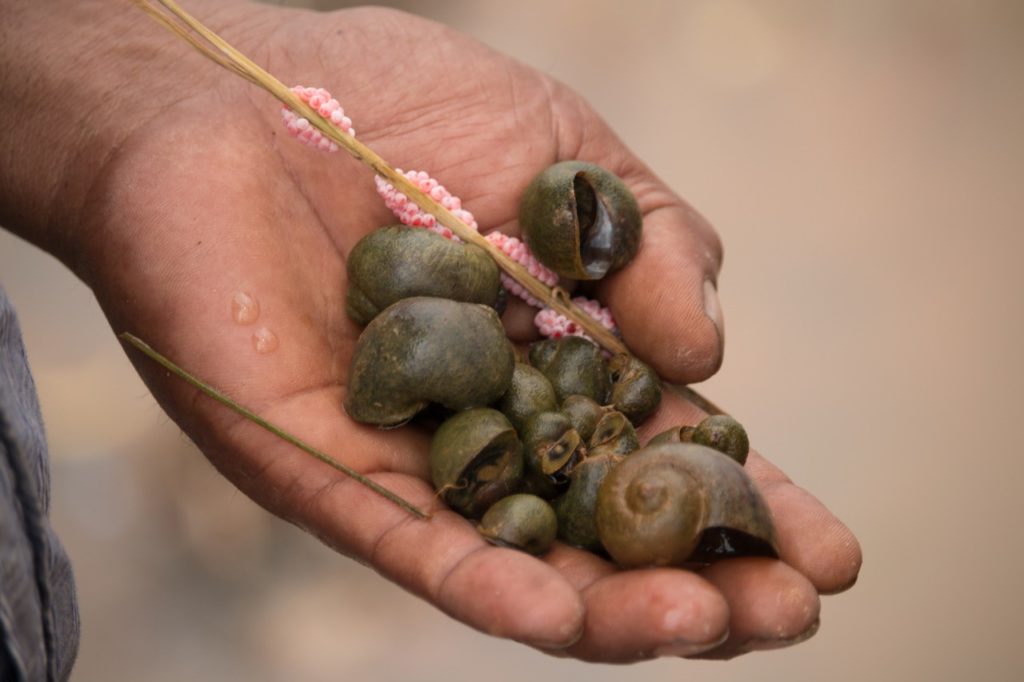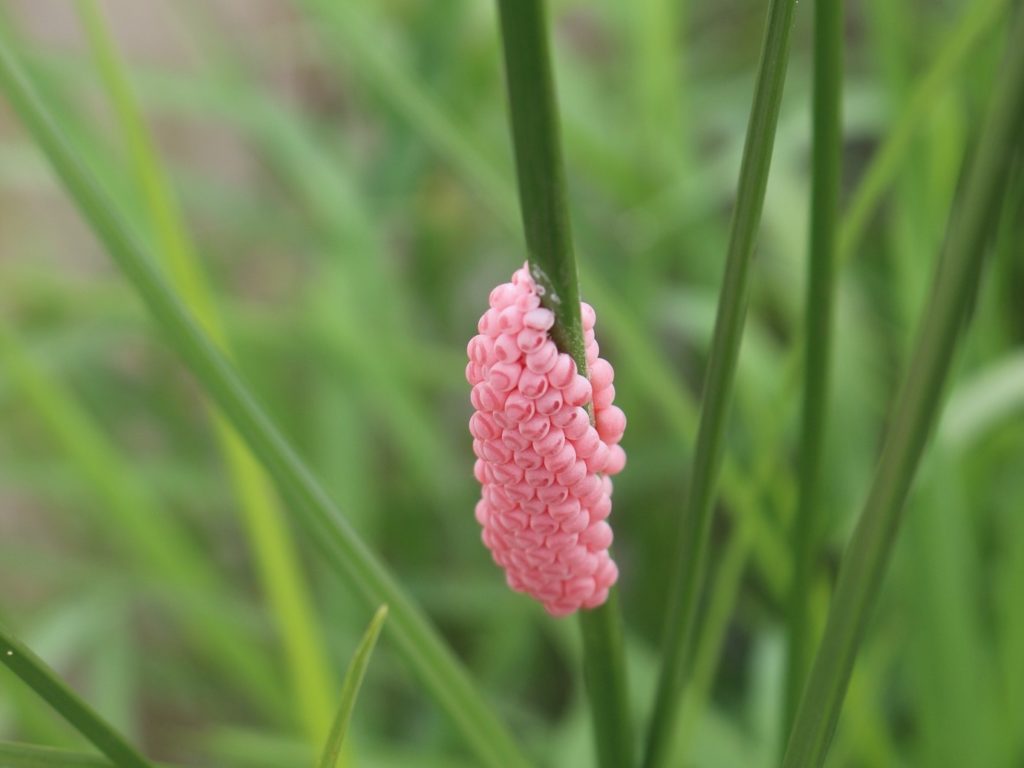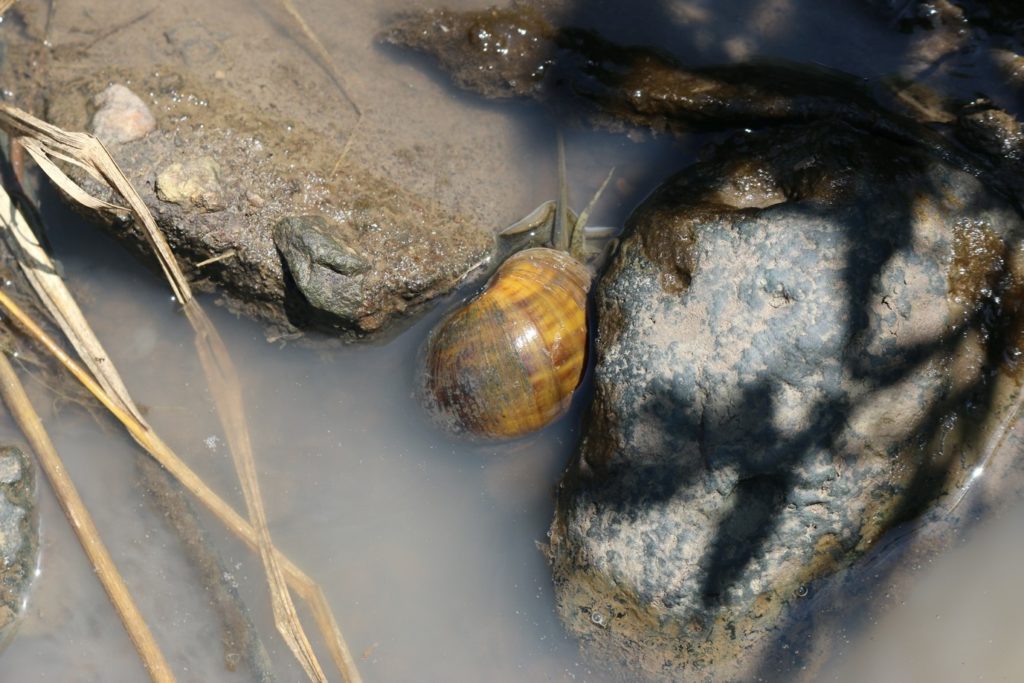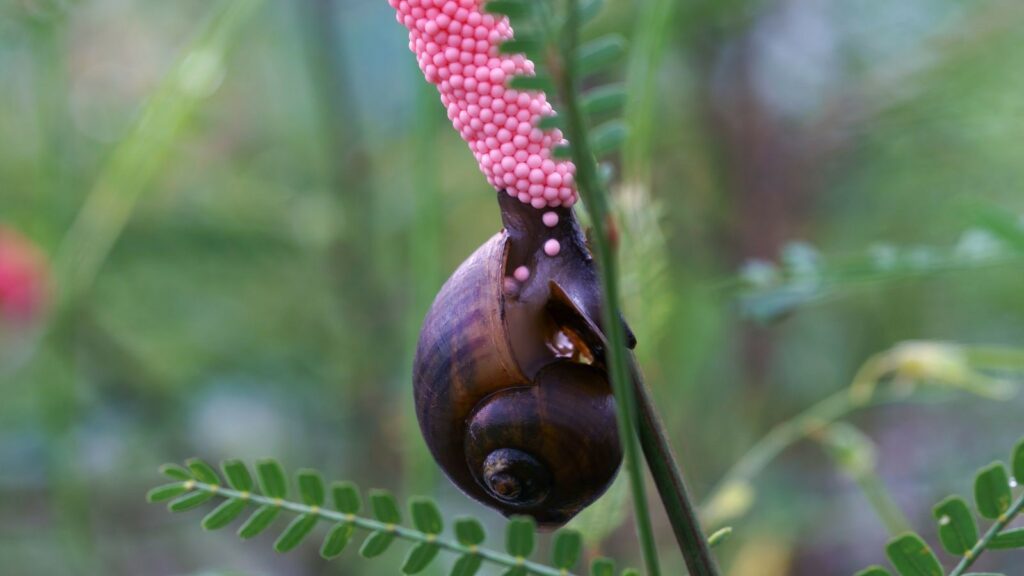The Life cycle of the invasive apple snail and its ability to grow and reproduce quickly makes it an incredibly successful invasive species.
Invasive apple snail, Pomacea canaliculate, is widely considered one of the most invasive invertebrates of waterways and irrigation systems. The snails are able to spread through irrigation canals, natural water distribution pathways, and during flooding events.

They have voracious appetites with aquatic cultivated crops such as rice and taro particularly vulnerable to their feeding. They make rasp-like cuts on host plants and damage is rapid – a large adult snail can consume a blade of rice in 3-5 min.
Snails live around one to two years in tropical climates. Due to the warm temperatures the snails do not hibernate and reproduce throughout their lifetime. They spend most of their time in the water making them hard to detect. Their eggs, which are bright pink and laid just above the waterline, are more visible.
Life cycle of the invasive apple snail
Day 1

Female invasive apple snails lay their eggs just about the waterline on plants or structures like rocks, logs, or walls, usually at night. The individual eggs are small (2 -3 mm) and round and bright pink. Each egg cluster contains around 500 eggs. The egg cluster gradually changes shade, becoming paler as the eggs get closer to hatching.
Day 7 – 14
A week to two weeks after the female snail lays the eggs, they hatch. The number of days depends on the temperature – the warmer it is the shorter the incubation period.
Newly hatched snails are tiny, with shells of approximately 2 millimetres in diameter. The snails grow rapidly and drop from where they hatched in into the water below. Once in the water, the newly hatched snails feed on algae and organic detritus.
Day 15 – 25

Around two weeks after hatching, the snails develop into juveniles. Once its shell reaches approximately 1.5 centimetres the juvenile snail will start to feed on young rice seedings and other aquatic plants. The snails attack the base of rice seedlings and other aquatic parts and then devour aerial parts.
Day 45 – 60

After about 45 days, the snail shells reach around 2.5 centimetres in diameter. They are now fully grown and able to reproduce, restarting the cycle.
Watch the life cycle of the invasive apple snail
View the life cycle of the invasive apple snail
Read more about the invasive apple snail on the Plantwise Knowledge Bank and the Invasive Species Compendium
3 Comments
Leave a Reply
Related News & Blogs
Biological control in action: Zambia’s field days on fighting fall armyworm
Experts from CABI recently held two field days and an expo in Zambia, showcasing innovative approaches to pest management to 584 farmers, agro-dealers and other stakeholders to help raise awareness of approaches to tackle the invasive fall armyworm (Sp…
11 June 2025





I have 4 large Apple snails in my gold fish aquarium,they have layed 2 clusters of eggs . 1 cluster of eggs is aprox 5 weeks old and the eggs are almost white. Are they ready to hatch ?
Apple snail eggs typically take 2 to 4 weeks to hatch, depending on environmental factors like temperature and humidity. If one of the clusters is around 5 weeks old and the eggs are turning white, it’s likely that they have either:
1. Failed to develop: If the conditions weren’t ideal (too dry, too wet, or too cool), the eggs might have dried out or failed to mature. White or faded eggs often indicate they are infertile or dead.
2. Already hatched: In some cases, empty egg cases may appear white or translucent after the baby snails have emerged. Check below the eggs and around the tank for tiny snails.
To confirm hatching status:
• Look closely at the eggs for tiny cracks or missing sections.
• Check the aquarium substrate and decorations for small, pinhead-sized snails.
If the eggs are still intact and white, it’s unlikely they will hatch. For better success with future clutches, ensure proper conditions, such as moderate humidity and warmth, and keep the eggs slightly above water to prevent submersion.
Yes! The eggs grow pale in color when they’re close to hatching